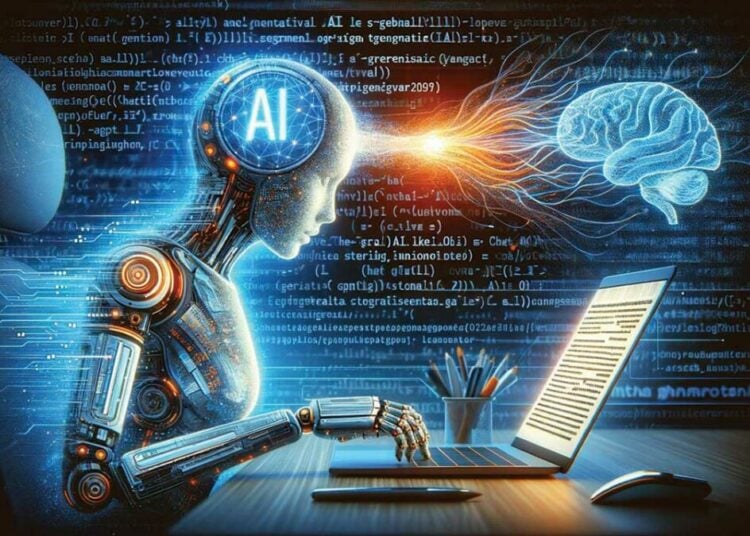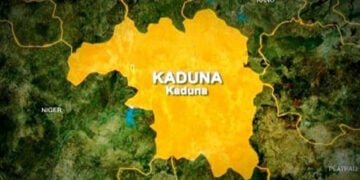Stakeholders in the media, entertainment, entrepreneurship, and creative industries have tasked Nigerian youths on the need to embrace and harness Artificial Intelligence (AI) and innovation for youth empowerment and continental development.
The experts also called for a balanced approach to AI technologies, stressing the need to embrace innovation without losing the human essence.
Speaking during a panel discussion and world press conference tagged: “The Future Is Now: Redefining Creativity, Connection and AI-Powered Storytelling,” on Sunday in Abuja, the anchor, Mr. Stainless Precious, called on African youth to shift their mindset from dependence on government employment to self-empowerment through digital innovation.
Precious noted that the world has gone global, and AI presents opportunities for young people to be creative, stay productive, and make a living for themselves and their families.
For his part, President of the Africa CEO Club from The Gambia, Dr. Fatoumatta Gaye, also highlighted the importance of integrating AI into business, governance, and everyday life across Africa.
“Artificial Intelligence can transform how we work—from business management to music production, video editing, and communication. Tasks that take hours can now be done in minutes. Young Africans must be innovative and keep up with new technologies emerging daily,” Gaye said.
She emphasised that the continent should not only consume technology but also create its own digital solutions.
“Africa must invest in training and capacity building so that its youth can participate actively in the digital economy. AI can make a difference in every sector—from agriculture and real estate to film and education,” she said.
Gaye also stressed the need for effective policy frameworks and digital education, comparing global practices.
“In China, social platforms promote innovation and discipline,” a participant observed. “Africa must regulate its digital space to protect and empower young people,” she added.
Speaking on the role of the media in shaping global politics and public opinion, Secretary of the Nigeria Union of Journalists (NUJ), FCT Council, Comrade Jide Oyekunle, described the media as the lifeline of democracy and a crucial agent of accountability.
“He who controls information controls the mind,” Oyekunle said. “The media bridges the gap between the government and the people. Through investigative journalism, the press exposes corruption, ensures transparency, and shapes civic engagement.”
Oyekunle also noted that the media plays an agenda-setting role by determining the issues that dominate public discourse.
“What the media talks about becomes a national topic,” he said. “That’s the power of agenda-setting.”
A renowned filmmaker and activist, Mazi Nnamdi Iroegbu, addressed the misconceptions about education and its relevance in the modern era.
“Education is not a scam,” he said. “If you went to school and school didn’t pass through you, that’s where the problem lies. The world is changing fast, and our educational system must blend theory with practical skills and innovation.”
Mazi urged African governments and institutions to be intentional about empowering youth for the digital age, stressing that AI has become an indispensable tool for creativity, entrepreneurship, and governance.
“Technology keeps advancing every day,” he said. “The earlier we embrace AI and start developing our own African tech platforms, the better. With AI, there are no limits to what you can create.”
He also called on financial and security institutions to engage with young people productively instead of criminalising tech-savvy youth.
“Rather than seeing them as fraudsters, we should see them as geniuses who can be redirected towards innovation,” he said.
A veteran broadcaster and entertainer, Ernest Essien, popularly known as MC Miracle, shared a personal experience in which a client judged his competence based on social media following rather than professional skill.
“It was no longer about my professionalism but about what they could see online,” he said. “Originality is being replaced by digital impressions.”
“Fake news now travels faster than truth,” one contributor noted. “People can’t always tell what’s real from what AI generates.”
On his part, a youth development advocate, Mohamed Basah, urged governments and organisations to equip young people with digital and business skills relevant to today’s economy.
“The world no longer rewards certificates but skills,” he said. “Empowerment without business education is no empowerment.”
The panelists collectively agreed that AI is not a threat but a tool for progress. They called for collaboration among governments, civil society, and private organisations to create training programmes and digital literacy campaigns aimed at equipping African youth with the skills needed to thrive in a technology-driven world.
Panelists also warned that while AI enhances productivity and opportunity, it can fuel misinformation, scams, and the erosion of authenticity.





